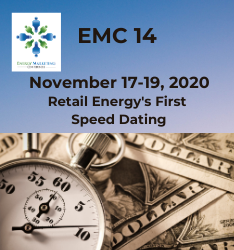|
|
|
|
|
PSC Staff Seek Revocation Of Retail Supplier's License, $500,000 Fine
The following story is brought free of charge to readers by EC Infosystems, the exclusive EDI provider of EnergyChoiceMatters.com
Staff of the Maryland PSC have recommended that the Commission revoke the electric supplier license of SunSea Energy, LLC, and impose a civil penalty of $500,000, as Staff alleged that, among other things, the company engaged in a, "pattern of deceit," that allegedly included instances of slamming as well as unfair, false, misleading, or deceptive marketing or practices in alleged violation of COMAR 20.53.07.07(A)(2).
As exclusively first reported by EnergyChoiceMatters.com, the Maryland Office of People's Counsel had filed a complaint against SunSea, alleging, as the result of a cold sales call from an agent of SunSea to the Deputy People's Counsel, that the company intentionally provided false information and engaged in deceptive practices. The PSC ordered that a hearing be held regarding OPC's complaint.
Staff, in testimony filed in the case, said that Staff has reviewed complaints filed with the PSC against SunSea, and Staff alleged that, "there are numerous instances where the Third-Party Verification ('TPV') did not disclose the rate in violation of COMAR 20.59.07.08A(2)(D)."
Staff's witness alleged, "I conclude that SunSea is in clear violation of COMAR, as none of the TPVs I reviewed ever stated the rate to be charged. I believe this is significant as the rates SunSea is charging are far above SOS rates, and I believe it is quite likely that few of these customers would have signed up for SunSea's service if they were informed of the rates."
"Moreover, in its response to OPC, SunSea states that the 16 allegations were perpetrated by a rogue agent of SunSea Energy that is no longer an agent of SunSea. While it may be true that SunSea may lack control over its sales force, it is responsible for the acts of its agents (COMAR 20.53.08.02 B and 19 20.59.08.02 B) and it does control the rates it charges customers ... [A] number of customers were charged an initial variable rate of $0.1799, a rate far exceeding the SOS rates, which are currently under $0.08 for each of the investor owned utilities," Staff's witness alleged
"This, along with the nature of the complaints ... leads me to believe that this was not simply one 'rogue' agent, but likely typical of the marketing methods employed by SunSea. I fail to see why any customer would agree to rates these high unless the Company was engaging in deceptive marketing practices, such as those documented by [Deputy OPC] Mr. Fields," Staff's witness alleged
Citing the complaint, Staff's witness alleged that, "CAD [the PSC's Consumer Affairs Division] has found numerous instances of slamming, and the Company has failed to state a price on many of the TPVs. Several customers claimed that SunSea representatives made false and misleading statements. Moreover, multiple complaints note what appears to be a pattern of unresponsiveness to customer's demands to cancel service. Again, this is particularly egregious given the excessive rates SunSea is charging."
Staff's witness said that COMAR 6 20.53.06.06(B) and 20.59.06.06(B) specifically requires that a supplier shall process a non-residential customer's request to cancel supply services not later than the end of the second utility business day after the customer's cancellation request.
"Fair dealing dictates that residential customers receive equally fair treatment," Staff's witness said
Notable among the complaints cited by Staff is a complaint in which the customer alleged, "SunSea misrepresented itself by claiming to be National Gas and Electric."
Another customer complaint alleged that, in informing the customer of the purpose for the call, "SunSea said this was for the Senior Citizen Choice Energy program, and that she would receive three checks for $50."
Citing the complaints, Staff's witness said, "The incidence and similarity of the violations, indicates a systemic pattern and practice of violations by SunSea."
"I recommend a civil penalty in the amount of $500,000 ... I further recommend that the license of SunSea be revoked," Staff's witness said
In a prior response to a PSC directive setting the matter for hearing, SunSea had stated that the call made to the Deputy OPC was made by a third-party agent
In an initial response to OPC's complaint, SunSea had stated, "In summary, SunSea Energy denies any allegations that it is committing fraud, engaging in deceptive marketing and enrollment practices, and any potential allegations were perpetrated by a rogue agent of SunSea Energy that is no longer an agent of SunSea Energy. SunSea Energy does not believe that there exists cause to suspend or revoke its license to provide electricity and electricity supply services, preclude SunSea Energy from soliciting additional customers, or impose a civil penalty."
In such response, SunSea also stated, "SunSea Energy does acknowledge that it had a misunderstanding of the laws and regulations of Maryland as to when a signature was required after a telephone conversation with a client; and SunSea Energy has taken concrete steps to correct that misunderstanding."
As previously reported, OPC alleged that SunSea conducted an enrollment via telephonic contracting without obtaining a written signature, contrary to the Maryland Telephone Solicitation Act, and which did not qualify for an exemption under the Act
SunSea stated in its earlier answer, "Since the award of its licenses in Maryland, SunSea Energy primarily markets customers through door-to-door sales, with some acquisition of customers through the telephone after referral from an affiliate. After Governor Hogan's executive orders regarding the COVID-19 crisis, acquiring customers via door-to-door sales was discontinued and/or prohibited. In order to maintain the growth of its company, SunSea Energy entered into contracts with agents to handle telephone transactions with potential customers in all jurisdictions in which it had a license, with such agents only enrolling potential customers in Maryland after receiving calls from such potential customers."
"When SunSea Energy enrolled customers through the telephone, they did so in response to a potential customer calling SunSea Energy for service, or through a referral from an affiliate of SunSea Energy. To explain in more detail, SunSea Energy has affiliates that have contracts with cable companies, where those affiliates call cable customers to set up/confirm their cable installation dates. At the end of those cable calls, the SunSea Energy affiliate asks if the cable customer would like to speak with someone who can discuss with them their energy needs. When cable customers say 'yes', those customers are often transferred directly to a SunSea Energy representative. Other times the customer calls SunSea Energy, and at times, a customer agrees to receive a call from a SunSea Energy representative. Should a cable customer wish to enroll as an electric or gas customer of SunSea Energy while on those calls, SunSea Energy would conduct a Third Party Verification ('TPV') of the enrollment, and would send the new customer the contracts via mail, like they were sent to Mr. Fields. SunSea Energy would not require a written signature after that, as it was under the impression that this was an existing business relationship, which would exempt SunSea Energy from the Maryland Telephone Solicitation Act (referred to as 'MTSA')," SunSea said in its earlier answer
"On January 31, 2020, the Commission's Consumer Affairs Division (referred to as 'CAD') issued a ruling in the Complaint filed against SunSea Energy by [redact customer name] where CAD determined that in referral scenarios as described above, the preexisting business relationship was with the cable company and not with SunSea Energy, meaning the MTSA would require SunSea Energy to obtain a written signature from the customer after the telephone enrollment. Since shortly after that date, SunSea Energy stopped accepting enrollments from any call transfers, and only if the customer called SunSea. At all times, a TPV was performed," SunSea said in its earlier answer
SunSea said in its earlier answer that, due to the errors made by its third-party agent, as reflected in the audio records, and the lack of information provided to SunSea from the agent about one of the alleged calls, SunSea Energy immediately terminated its contract with the agent, not only for services in Maryland, but also in other jurisdictions. In addition, SunSea Energy ceased enrollment of new customers in Maryland, notifying all of its agents, until this matter can be resolved.
"SunSea Energy does not tolerate any form of fraud or misrepresentation by its employees or agents," SunSea said in its earlier answer
"At no time should any employee, affiliate or agent of SunSea Energy claim they are the utility, and its contrary to all company training materials, including call scripts provided. SunSea Energy believes this action, if it occurred, was by a rogue agent of SunSea Energy, and connected with [the third party agent], and is not likely to occur again," SunSea said in its earlier answer
SunSea Energy noted that it only contracted with the subject third-party agent on May 1, 2020, and terminated the agent on May 25, 2020.
SunSea said that all of its residential customers, including the Deputy OPC, were provided the terms and conditions of service by the Company, as well as a Contract Summary Form, prior to enrollment
SunSea Energy said that it believes that the behavior alleged by OPC, "was a result of a rogue agent, who was immediately terminated, and is not reflective of how SunSea Energy, or its other agents, conduct business in Maryland."
"SunSea Energy took immediate, corrective action, terminated its contract with [the third-party agent], and ceased all enrollment of Maryland customers while this matter gets resolved. SunSea Energy denies that it has a pattern or practice of violations, or that its licenses should be suspended or revoked, or that a civil penalty is proper. Furthermore, SunSea Energy pledges to conduct additional training of its employees and agents to ensure compliance with Maryland statutes and regulations," SunSea Energy said
Case 9647
ADVERTISEMENT Copyright 2010-20 Energy Choice Matters. If you wish to share this story, please
email or post the website link; unauthorized copying, retransmission, or republication
prohibited.
Staff: "Fair Dealing Dictates That Residential Customers Receive Equally Fair Treatment," As Non-Residential Customers Receive Under COMAR Provision
October 2, 2020
Email This Story
Copyright 2010-20 EnergyChoiceMatters.com
Reporting by Paul Ring • ring@energychoicematters.com
NEW Jobs on RetailEnergyJobs.com:
• NEW! -- Director of Regulatory Affairs -- Retail Supplier -- Houston
• NEW! -- Energy Pricing Analyst -- Houston
• NEW! -- Retail Energy Account Executive -- Houston
• NEW! -- Sr. Sales Executive -- Retail Supplier
• Energy Systems Analyst -- Retail Supplier
|
|
|
|









